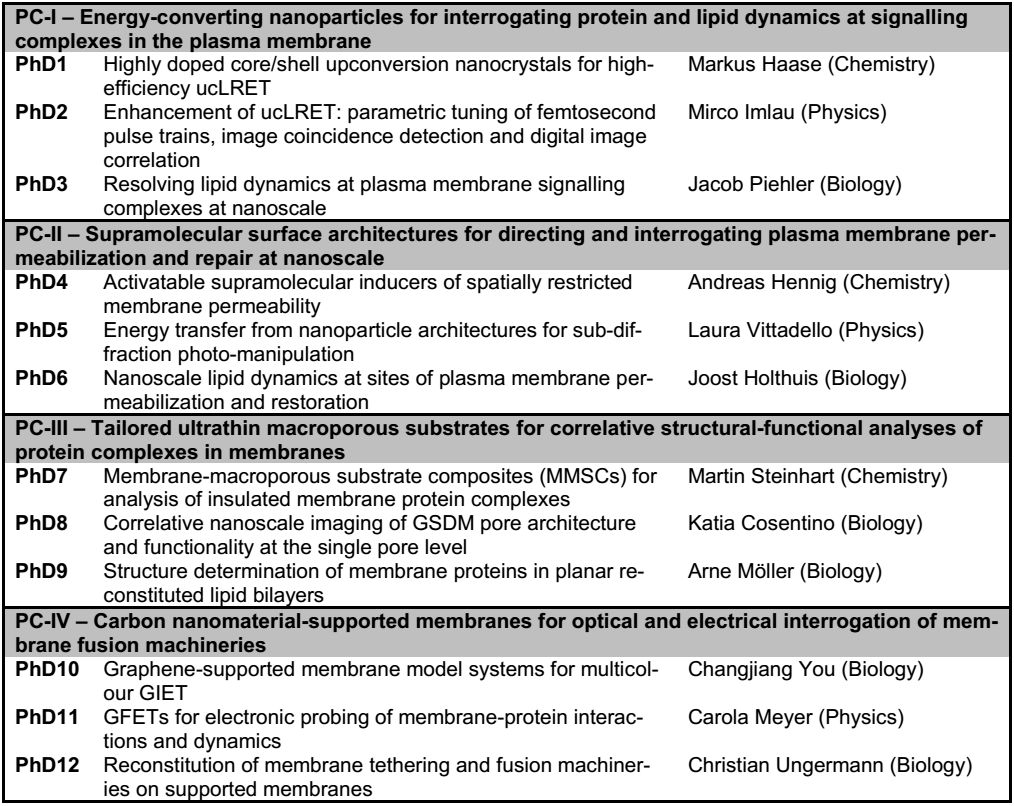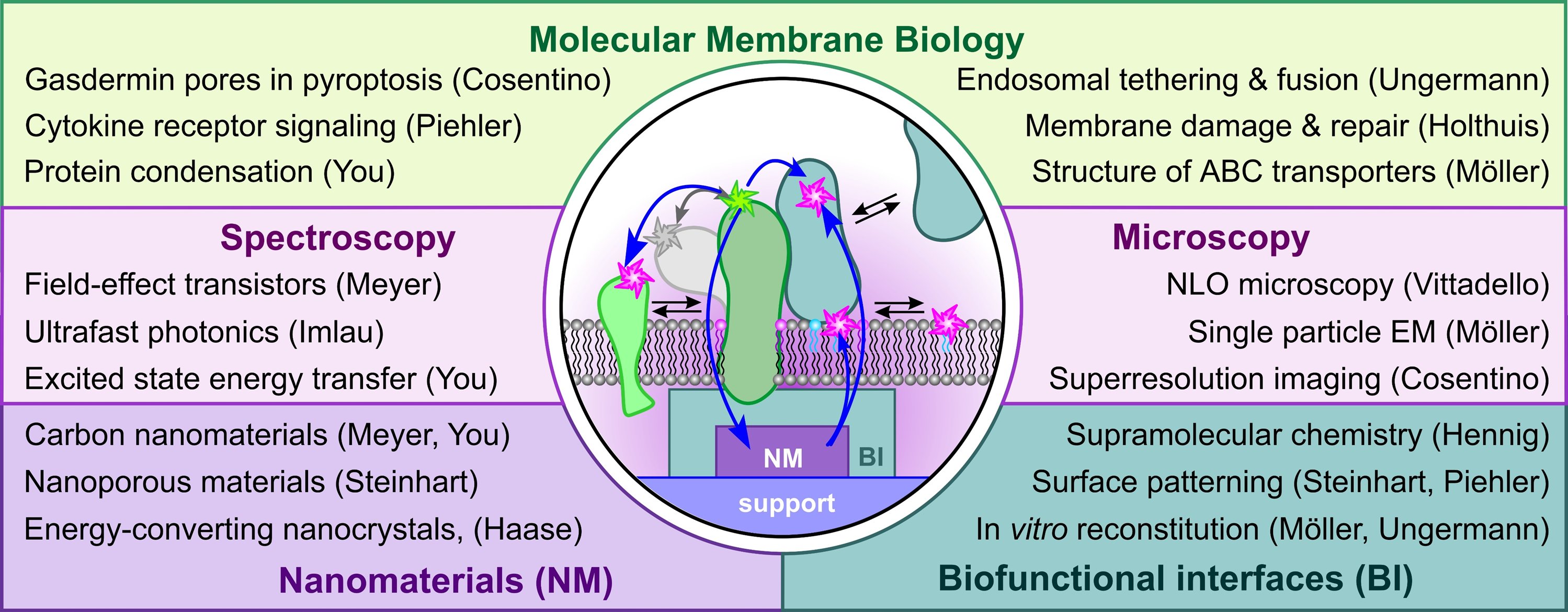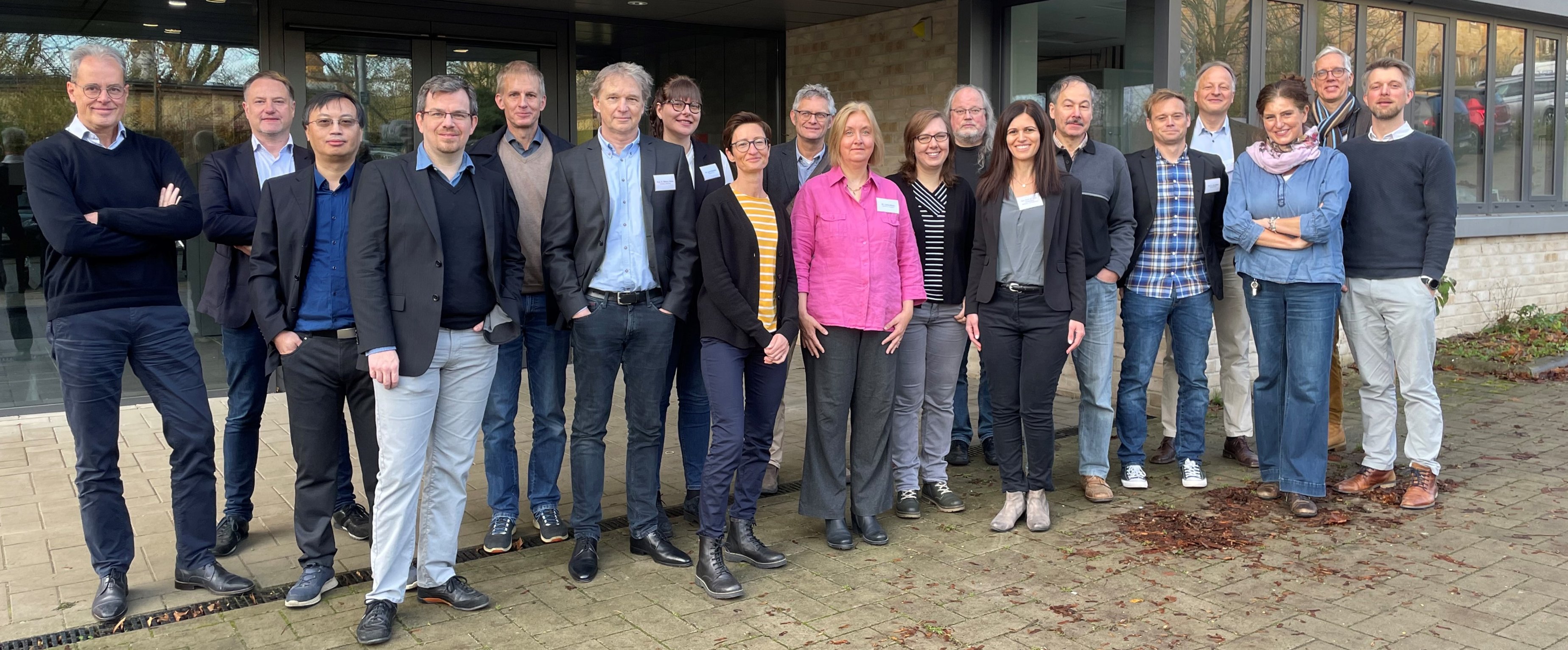Main content
Top content
nanomaterials@biomembranes
"Rationally designed surface architectures for nanoscale interrogation and manipulation of biomolecules at membranes"

Research Training Group - RTG:2900

The mission of “nanomaterials@biomembranes” is to offer interdisciplinary research training at the interface of biology, chemistry and physics. The research program will be focused on developing novel biophysical techniques to resolve dynamic processes at lipid membranes from mesoscopic down to atomic scales. For this purpose, we will exploit the unique electronic and optical properties of emerging nanomaterials to achieve interrogation and manipulation of biological processes with unprecedented spatial and temporal resolution. Projects are organized into highly collaborative, interdisciplinary clusters, each of which is aligned with an overarching aim. Dedicated research training will be complemented by a tailored qualification program to ensure efficient onboarding, successful completion of the PhD project and optimum preparation for further career steps.
RTG Project Clusters

Individual PhD projects are bundled into four interdisciplinary project clusters (PCs), each of which will address a joint, overarching topic.

RTG Topics & Methods

The 12 PIs of “nanomaterials@biomembranes” cover a broad spectrum of research topics and methods ranging from nanomaterial design and synthesis, surface biofunctionalization as well as advanced spectroscopy and microscopy to membrane and lipid biology and biophysics. PhD students select their thesis advisory committees covering the expertise required for their projects.
RTG Team

The expertise of the 12 participating PIs from Biology, Chemistry and Physics is complemented by eight associated experts, who will be available for hands-on training in cutting edge methodology:
- Dovile Januliene – Membrane protein biochemistry and structural biology
- Karsten Kömpe – Synthesis of inorganic nanocrystals
- Matthijs Kol – Membrane biochemistry and lipid cell biology
- Sergej Korneev – Organic synthesis and lipid chemistry
- Susanne Kunis – Research data management
- Rainer Kurre – Advanced and superresolution fluorescence microscopy
- Lars Langemeyer – Protein biochemistry and membrane reconstitution
- Katherina Psathaki – Biological electron microscopy techniques
RTG Research Infrastructure

PhD students of “nanomaterials@biomembranes” will work together in the Research Building CellNanOs, which has been designed for interdisciplinary method development. The building offers a comprehensive research infrastructure, including laboratories for chemical synthesis and for surface micro- and nanofabrication as well as a full-fledged molecular cell biology pipeline. Furthermore, the building hosts the fluorescence and electron microscopes of the Integrated Bioimaging Facility iBiOs including several unique experimental microscopy setups.
Your Application for PhD positions
You are interested in pursuing your PhD within the framework of nanomaterials@biomembranes? We are currently hiring the first generation of PhD students, who will start in January 2024. The official opening of these positions via the university´s web site can be found here. Please send your application indicating the desired project cluster with the usual documents (curriculum vitae, certificates incl. transcripts of records, letter of motivation) and your application form, in electronic form to the coordinator of the initiative, Prof. Dr. Jacob Piehler, by August 31st, 2023, Email: RTG2900[at]uni-osnabrueck.de.

